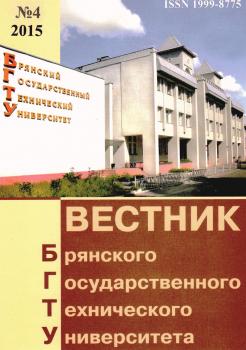Bryansk, Russian Federation
Now theoretical scientific knowledge, including economic is at post-non-classicism stage which is cha-racterized by actualization of the interdisciplinary ap-proach, strengthening of an ethical role and attracting attention to the study of difficult systems and non-linear processes. However not all currents of an eco-nomic thought correspond to post-non-classicism stage. The mainstream economics is described by some scientists in terms of crisis, super formality, unrealistic basic prerequisites and stalling. In many respects it is connected with the fact that basic outlines of an economic mainstream are based on outdated philosophical prerequisites of two centuries ago. Overcoming restrictions of economic science requires reconsideration of its methodological bases and the research object, the appeal to other social sciences and humanities achievements. Today in the methodology of economic science there are essential revolutionary changes connected with formation of a humanistic paradigm, studying of the heterogeneous economic subjects behavior having different moral qualities. According to the author, overcoming the crisis phenomena in the economic theory and increase of the practical significance of economy as a science can be connected with a return to dialectic logic, ontological bases of economic knowledge, ethical rationality, and consideration of relationship between humans.
ethics, methodology, model of the person, paradigm, scientific revolution, dialectics.
1. Avtonomov, V.S. Model of a person in economic science / V.S. Avtonomov. - SPb: Economic school, 1998. - 230 p.
2. Vorobyova, G.S. The rationality of the economic human behavior from the transdisciplinarity point of view / G.S. Vorobyova // Bulletin of the Tomsk State University. - 2014. - № 383. - P. 159-169.
3. Grebnev, L.S. Person in economy: theoretical and methodological analysis: Thesis for D.Ec.Degree / L.S. Grebnev. - M, 199- 178 p.
4. Nifayeva, O.V. Methodological background of humanistic paradigm of economic theory / O.V. Nifayeva // Proceedings of the Tambov Regional Office of the Russian Union of Young Scientists, Issue 5 "Development prospects of scientific knowledge in the 21st century". - Tambov: Publishing House TSU named after G.R. Derzhavin, 2016. - P. 165-168.
5. Nifayeva, O.V. Moral and ethical capital: the problems of evaluation / O.V. Nifayeva // World economy and international relations. - 2014. - № 8. - P. 25-33.
6. Nifayeva, O.V. Economy and ethics: theory and methodology of interrelation / O.V. Nifayeva. - Bryansk: New project, 2015. - 295 p.
7. O'Hara, F. Modern principles of heterodox political economy / F. O'Hara // Economy Issues. - 2009. - № 12. - P. 38-57.
8. Ryazanov, V.T. Anthropological principle in economy / V.T. Ryazanov // Bulletin of the St. Petersburg University. Series 5. Economy. - 2006. - № 1. - P. 3-18.
9. Philosophical encyclopedic dictionary / Editorial board: S.S. Averintsev, E.A. Arab-Oglou, L.F. Ilyichev [etc.]. - 2nd Edition. - M.: Soviet Encyclopedia, 198- 815 p.
10. Wilson, D. Homo Economicus Meets G. H. Mead: A Contribution to the Critique of Economic Theory/ D. Wilson, W. Dixon // American Journal of Economics and Sociology. - 2008. - Vol. 67. - No 2. - Р. 241-263.











